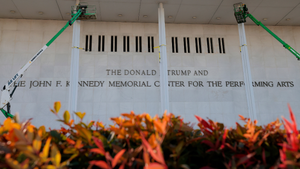The Massachusetts
senate voted Tuesday to repeal a 1913 law used to bar
out-of-state gay couples from marrying in the state, a law
that critics say was originally aimed at interracial
marriages.
The law prohibits
couples from obtaining marriage licenses if they can't
legally wed in their home states.
The House is
expected to vote on the repeal measure later this week. The
Senate action came on a voice vote.
After
Massachusetts became the first state to allow gay marriages
in 2004, then-governor Mitt Romney ordered town clerks
to enforce a little-known 1913 law that denied
licenses to out-of-state couples.
Critics,
including Democratic governor Deval Patrick, the state's
first black governor, said the 95-year-old statute
carries a racist taint and needs to be repealed.
The law dates to
a time when the majority of states still outlawed
interracial marriages, and backers of repeal said the law
was intended to smooth relations with those states.
Massachusetts has allowed interracial marriages since
1843.
Dianne Wilkerson,
the state Senate's lone black member, said repeal was
long overdue.
"This is one of
the most pernicious statutes on our books," said
Wilkerson, a Boston Democrat. "In some respects this bill
puts the final nail in the coffin of those dark days."
Another factor
driving the repeal effort in Massachusetts was the recent
embrace of same-sex marriage by California, which has no
residency requirement for obtaining a marriage
license.
Opponents of gay
marriage said there was no evidence the 1913 law has a
racist heritage. They said keeping the law in place was key
to preventing gay marriage from spreading to other
states, many of which have passed laws or amended
their constitution to bar same-sex marriage.
"The
Massachusetts Senate has no right to infringe on the
internal issues of how other states define marriage,
but that's exactly what they voted today to do," said
Kris Mineau, president of Massachusetts Family
Institute.
An analysis by
the state Office of Housing and Economic Development found
repealing the law would draw thousands of couples to
Massachusetts, boosting the economy by $111 million,
creating 330 jobs and generating $5 million in taxes
and fees over three years. (AP)




































































Charlie Kirk DID say stoning gay people was the 'perfect law' — and these other heinous quotes